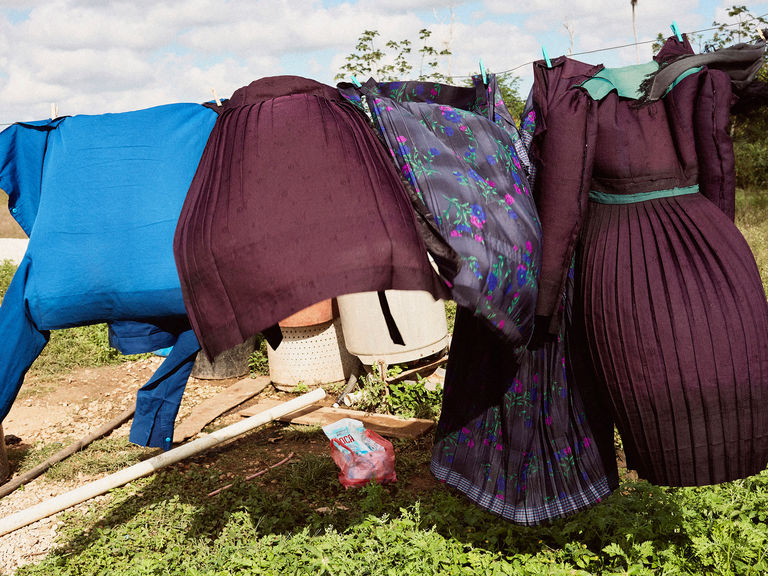Project Detail: The Old Order Mennonites
Contest:
Reportage and Documentary 2020
Brand:
LuganoPhotoDays
Author:
Ephraim Bieri
Project Info
The Old Order Mennonites
A documentation about the Mennonites in Belize & Mexico. Because of their prussian origin they still talk in low german language
”Six days you shall work, but on the seventh day you shall rest” - that is what the Bible says.
They live in secluded settlements and practice agriculture. They are allowed to use motorised vehicles only for farming, but the wheels must be steel; rubber is forbidden. This is to keep men from driving to villages and cities to get forbidden alcohol and cigarettes.
The settlements are made up of farms, shops for food, clothes, and tools, silos for crop storage (mostly beans, corn, and soya), schools and churches.
Many families have more than 15 children, who start to work at home from a very young age. Once they are six years old, they have to work in the fields in high temperatures - for their own family or for other farmers. In the evening they often sit together and chat by candle or torchlight.
School takes place during six months of the year, the other months are harvest season. Girls go to school from age six to 11, boys until age 12. Every day they have to recite the 70 pages of the Mennonite Catechism, ”the short and simple version of the holy scriptures.” The first sentence of this little black book reads: “Come, children, listen to me; I will teach you the fear of the Lord” (Psalm 34,12). The meaning of the texts is only explained to them before their baptism, which takes place at the end of their schooling.
There is hardly any leisure, sport, or play. Music, cars, radios and the internet are forbidden. All these things could deter work and tempt to evil. It is the duty of each to monitor the others, to confiscate forbidden things and to burn them in the fire. After this the sinner must face the community and ask for forgiveness.
The Mennonites have Sunday afternoons off. Youths over 16 are allowed to be on the street, where they get to know other girls and boys, shaping their own futures and families.


















